What's New
Displaying results 1661 - 1670 of 4922
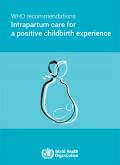
Resource | Guidelines,
This guideline is a consolidated set of new and existing recommendations on essential labour and childbirth practices that should be provided to all pregnant women and their babies during labour and childbirth irrespective of socioeconomic setting. It promotes the delivery of a package of labour and childbirth interventions that is critical to ensuring that giving birth is not only safe but also a positive experience for women and their families.
It highlights how woman-centred care can optimize the quality of labour and childbirth care through a holistic, human rights-based approach. By outlining a new model of intrapartum care that is adaptable to individual country contexts, the guideline enables substantial cost-savings through reduction in unnecessary interventions during labour and childbirth.
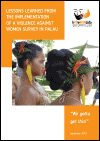
Resource | Publications,
Collecting reliable, comparable and comprehensive data measuring the prevalence, nature of and other factors associated with violence against women (VAW) is essential to ending this violence. VAW is an extremely sensitive topic that requires specialised research methods to ensure both the quality of the data collected and the safety of the researchers and interviewees. This document contains lessons learned from Umerang Imetengel’s experience as a research coordinator implementing the Belau Family Health and Safety Study in Palau, as documented in a series of interviews conducted after the data collection had been completed.
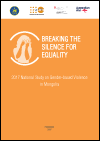
Resource | Publications,
The 2017 National Study on Gender-based Violence in Mongolia breaks down intimate partner and non-partner violence revealing violence for both lifetime and within the last 12 months. Furthermore, the study also gathers and reveals the data for the different forms of violence; physical, sexual, economic and emotional violence, and controlling behaviours.
The survey, interviewed more than 7,000 women – uncovering extremely high rates of intimate partner and non-partner violence against women across Mongolia.
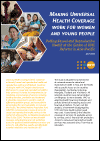
Resource | Publications,
This study reviews progress in six Asia-Pacific countries towards the achievement of the UN Sustainable Development Goals 3.7 and 3.8 on Universal Health Coverage for all and access to sexual and reproductive health services, including family planning.
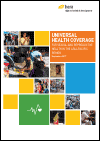
Resource | Publications,
Ths study reviews progress in six Asia-Pacific countries towards the achievement of the UN Sustainable Development Goals 3.7 and 3.8 on Universal Health Coverage for all and access to sexual and reproductive health services, including family planning.
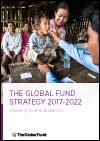
Resource | Publications,
The Global Fund Strategy 2017-2022, Investing to End Epidemics, was developed under the leadership of the Board of the Global Fund, with contributions from numerous partners and stakeholders who share common goals in global health. Over a two-year period, in 2014 and 2015, the Board’s Strategy, Investment and Impact Committee led a broadly consultative process to collect the strongest ideas, perspective and guidance to formulate the Strategy.
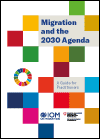
Resource | Publications,
The focus of this guide is to help policymakers implement the migration aspects of the SDGs. Policymakers can use this guide to integrate migration into local or national development planning, by designing and implementing interventions that relate to migration in the context of the SDGs. These interventions may take the form of legislation, policies, programmes, projects or other activities, and may relate to core migration topics or integrate migration into activities in another sector. For example, policymakers may use this guide to design interventions that directly address human trafficking, as well as interventions in the health sector that help protect victims of trafficking.
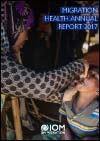
Resource | Publications,
This report provides a snapshot of IOM’s health activities in 2017 and presents key achievements under three broad themes: (a) partnerships in migration health; (b) migration health in the context of crisis; and (c) disease prevention and response. The report illustrates IOM’s growing multidimensional migration health activities and partnerships in 2017, and demonstrates IOM’s commitment to advancing the health of migrants and their families worldwide, as well as supporting IOM Member States in addressing migration health challenges.
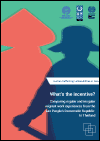
Resource | Publications,
Formal labour migration procedures are assumed to be beneficial to migrant workers in various ways, including by reducing vulnerability to abuse and exploitation. Little empirical work, however, has been conducted comparing the experiences of regular and irregular migrant workers, and assessing the outcomes of these different migration models. The report contributes to filling this gap in the study of migrant work, with a focus on the migration corridor between the Lao People’s Democratic Republic and Thailand.
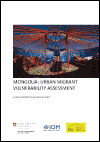
Resource | Publications,
The study identified that the main impacts of existing vulnerabilities on urban migrants include challenges finding accommodation, along with land in the case of the ger areas, employment, access to urban services, financial disadvantage, information access, and social and familial conflicts.





